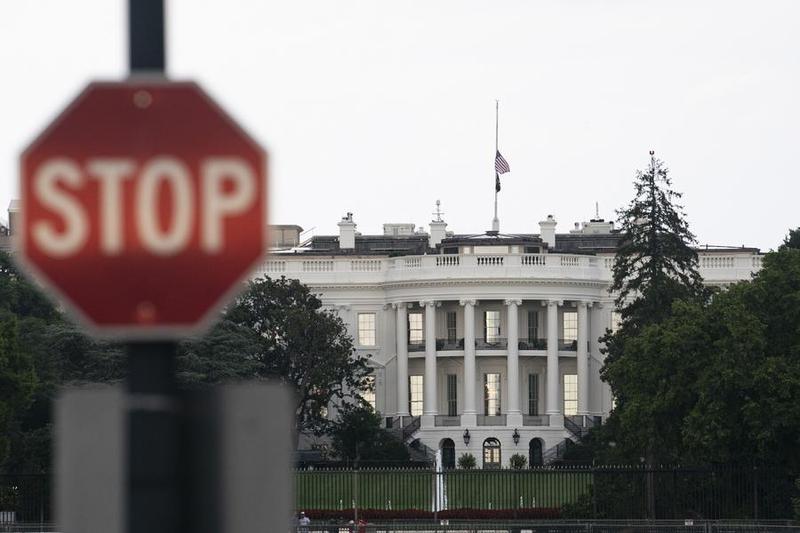The tragic free fall of US trustworthiness


One of the founding fathers of the United States Benjamin Franklin famously coined the phrase "Honesty is the best policy". It is unfortunate that US politics today has not lived up to this vision.
Just over four months into its term, the new US administration's actions have gone way beyond the wildest imagination. A series of mind-boggling actions were taken in a whirlwind, straining America's international trustworthiness, which has already been declining, and casting fresh doubts on the country once hailed as the "city upon a hill".
Self-inflicted credibility crisis
US leaders have made bold claims on international affairs in a very short time, like "ending the war in Ukraine in 24 hours", "Houthis in Yemen surrendered" and "India and Pakistan's ceasefire was mediated by the US", not to mention "the Chinese side had called".
These claims were all publicly denied by the parties concerned: the Ukraine crisis shows no sign of abating; China officially rejected claims of the phone calls; India clarified that the ceasefire came from direct talks between the two sides; and the Houthis stated that it was actually the US that "backed down".
The US' trade policy has shown striking inconsistency. The so-called "reciprocal tariffs" were suspended just 13 hours after their announcement, sending shockwaves through global markets. Tariffs on Chinese goods were raised to 145 percent, and later reduced to around 30 percent following the China-US Economic and Trade Talks. The US also threatened to impose a 50 percent tariff on European goods, backtracking on its own 90-day grace period. Heidi Crebo-Rediker, senior fellow at the Council on Foreign Relations, called it "one of the biggest 'own goals' to US credibility in financial markets" that she has ever seen in her lifetime.
The US government's shifting approach to global governance has undermined the basis for international cooperation. Proposing a Washington-led temporary post-war administration of Gaza, withdrawing from the World Health Organization, and repeatedly reversing decisions on tariff exemptions for electronic products.These unpredictable postures have exacerbated systemic uncertainty, while breeding global instability.
Even more concerning is the US' selective stance when its own interests are at stake. After failing to gain control over the Panama Canal, it pushed for new port agreements demanding free passage for US ships. It also showed interest in allies' territories, such as Canada and Denmark, and abruptly withdrew from and defunded various international programs, undermining its long-cultivated image of a responsible major power.
The backlash against US hegemony
Global trust in the US is eroding. Leaders in Canada and Australia clinched the election by harnessing anti-US grievances. Countries like the UK, France, Germany, India and Japan are secretly advancing de-Americanization and strategic autonomy, fearful of becoming pawns in America's geopolitical game. Nobel laureate and US economist Joseph Stiglitz remarked, the word of the USA is no longer worth anything in the world.
Deutsche Bank analysts pointed out that US unilateralism is fundamentally undermining the dominance of the US dollar. President of the European Commission Ursula von der Leyen stated that with US trade accounting for only 13 percent of global trade, Europe can unite the remaining 87 percent to bypass the US and reconstruct the global trade system. The IMF has downgraded the US' 2025 economic growth forecast by 0.9 percentage points, the largest decline among developed economies. Moody's has also downgraded the US' sovereign credit rating from the highest Aaa to Aa1, marking its loss of the top rating from all three major global credit agencies.
A corporate nightmare is now unfolding for American businesses. Giants like Tesla and Apple, reliant on global supply chains, have seen their market values plummet. The US government has threatened to impose a potential 25 percent punitive tariff on Apple, pressuring it to relocate production lines back to the country. US analyst Dan Ives warned that iPhones might cost $3500 if they're made in the US. The New York Times criticized that the US is wiping out American soft power in large swaths of the globe.
Restructuring of the world order
Vladimir Lenin pointed out that the economic essence of imperialism is monopoly capitalism. The current US administration's business-run government represents nothing less than the hijacking of state power by monopoly capital. Driven by their inherently myopic and speculative nature, these capitalists fundamentally fail to grasp the long-term value of national credibility, which is not optional for major powers. They mistake reneging on commitments for the art of the deal, bullying the world while patting themselves on the back.
American scholar Joseph Nye once criticized American leaders for relying too much on coercion and deals and ignoring that soft power, like trust, can "economize on carrots and sticks". A latest example is the US government's shocking move to block international students from Harvard, which has turned a top university into a political battleground and tarnished America's reputation of academic freedom and fairness.
The world sees with clear eyes. A recent Newsweek poll showed that amid US-initiated trade wars, China's international image has now surpassed that of the US. Even Alliance of Democracies Foundation, an organization consistently anti-China, admitted in a survey that positive views of the US fell from 76 percent to 45 percent in 2024. Among the Five Eyes, four countries now hold negative views of the US. Just as former NATO Secretary General Anders Fogh Rasmussen remarked, "It is no surprise that opinions have slipped even among people like me who spent years admiring the United States and what it stood for."
The demise of hegemony never stems directly from external challenges, but from the systemic arrogance and decay within. As the myth of American exceptionalism degrades into the reality of American perfidy, the old order sustained by arms and dollars will eventually cede ground to a new paradigm anchored in rules and trustworthiness.
The author is a commentator on international affairs, writing regularly for Xinhua News, CGTN, Global Times, China Daily etc. The views don't necessarily reflect those of China Daily.
If you have a specific expertise, or would like to share your thought about our stories, then send us your writings at opinion@chinadaily.com.cn, and comment@chinadaily.com.cn.



































